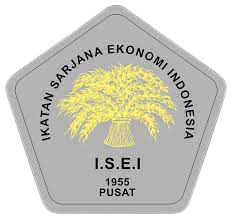Pengaruh kompensasi terhadap kinerja karyawan pada PT Penta Rekayasa Bandung
DOI:
https://doi.org/10.32670/fairvalue.v5i7.3050Keywords:
Compensation; Employee performance; Human Resources; Wages; CompanyAbstract
Human resource management is an important component of every organization. This is due to the fact that it is directly related to effectiveness, which will lead to an increase or decrease in the amount of money a company generates. This study aims to determine the effect of compensation on employee performance at PT. Penta Engineering Bandung. The research method used is descriptive-qualitative with a quantitative approach. The authors of this study surveyed 30 people as a first step in examining the relationship between pay and productivity. When comparing employee performance with positive results, the organization's remuneration strategy reflects employee dissatisfaction. The results of this research and the descriptive analysis of this study on the compensation variable yield an overall average percentage of 82.8%, placing it in the good category and indicating that the company provides satisfactory salaries to its employees. Descriptive analysis of employee performance characteristics shows an average percentage of 86.8%, placing this result in a very good range. At an impact level of 28.7%, compensation is very influential in determining performance
References
Arifudin, O. (2019). Pengaruh kompensasi terhadap kinerja karyawan di PT. Global Media. Jurnal Ilmiah MEA (Manajemen, Ekonomi, & Akuntansi), 3(2), 184–190.
Asmayana, H. A., Daweng, M., & Badollahi, I. (2018). Pengaruh Kompensasi Terhadap Kinerja Pegawai Pada Kantor Dinas Perdagangan Kota Makassar. Jurnal Profitability Fakultas Ekonomi Dan Bisnis, 2(2).
Hasibuan, M. S. P., & Hasibuan, H. M. S. P. (2016). Manajemen sumber daya manusia. Bumi Aksara.
Jufrizen, J. (2017). Efek mediasi kepuasan kerja pada pengaruh kompensasi terhadap kinerja karyawan. Jurnal Ilmiah Manajemen Dan Bisnis, 17(1).
Jufrizen, J. (2018). Peran motivasi kerja dalam memoderasi pengaruh kompensasi dan disiplin kerja terhadap kinerja karyawan. The National Conference on Management and Business (NCMAB) 2018.
Kasmir. (2016). Manajemen Sumber Daya Manusia (Teori dan Praktik). Jakarta : PT. Raja Grafindo Persada.
Kusjainah, K., & Listyorini, I. (2016). Faktor-Faktor yang Mempengaruhi Kinerja Karyawan: Model Pengujian dengan Variabel Mediasi. Telaah Bisnis, 16(1).
Novitasari, D. (2018). Pengaruh Motivasi, Disiplin Kerja Dan Kompensasi Terhadap Kinerja Karyawan PT. Bank Bni Syariah Cabang Surakarta. IAIN SALATIGA.
Nugraha, A., & Tjahjawati, S. S. (2017). Pengaruh kompensasi terhadap kinerja karyawan. Jurnal Riset Bisnis Dan Investasi, 3(3), 24–32.
Sari, M. M., Riyadi, S., & Nurdin, N. (2022). Pengaruh Kompensasi Terhadap Kinerja Pegawai Pada Perusahaan Daerah Air Minum (PDAM) Kabupaten Luwu. Jurnal Sinar Manajemen, 9(3), 428–433.
Sary, F. P. (2020). Pengaruh Kompensasi Terhadap Kinerja Karyawan (studi Pada Pt. Infomedia Solusi Humanika Bandung Divisi Inbound Call Center). EProceedings of Management, 7(1).
Setiawan, F., & Dewi, A. A. S. K. (2014). Pengaruh kompensasi dan lingkungan kerja terhadap kinerja karyawan pada CV. Berkat Anugrah. Udayana University.
Sudarmanto. (2015). Kinerja dan Pengembangan Kompetensi SDM (Cetakan Ketiga). Yogyakarta : Pustaka Belajar.
Sugiyono. (2017). Metode Penelitian Kuantitatif, Kualitatif, dan R&D. Bandung : Alphabeta.
Wijaya, T. (2015). Pengaruh motivasi dan kompensasi terhadap kinerja karyawan pada PT Sinar Jaya Abadi Bersama. Agora, 3(2), 37–45.
Yulandri, Y., & Onsardi, O. (2020). Pengaruh Kompensasi dan Disiplin Kerja terhadap Kinerja Karyawan. BUDGETING: Journal of Business, Management and Accounting, 1(2), 203–213.






























